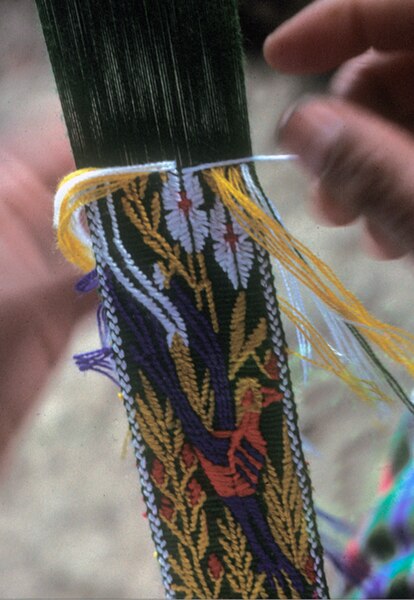Zari is an even thread traditionally made of fine gold or silver used in traditional Indian, Bangladeshi and Pakistani garments, especially as brocade in saris etc. This thread is woven into fabrics, primarily silk, to make intricate patterns and elaborate designs of embroidery called zardozi. Zari was popularised during the Moghul era; the port of Surat was linked to the Meccan pilgrimage route which served as a major factor for re-introducing this ancient craft in India.
'Banarasi sari' from Varanasi (Banaras), silk and gold-wrapped silk yarn with supplementary weft brocade (zari)
Zari Work
Sari from India (probably Benares), late 19th or early 20th century, silk with metallic thread (Zari)
Brocade is a class of richly decorative shuttle-woven fabrics, often made in coloured silks and sometimes with gold and silver threads. The name, related to the same root as the word "broccoli", comes from Italian broccato meaning "embossed cloth", originally past participle of the verb broccare "to stud, set with nails", from brocco, "small nail", from Latin broccus, "projecting, pointed".
Cope and chasuble; Brocade of Lyon. 19th Century
Silk brocade fabric, Lyon, France, 1760–1770.
Detail of hair-sash being brocaded on a Jakaltek Maya backstrap loom.
Large Yunjin brocade loom, Nanjing, China, 2010







